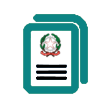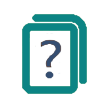What is CLIL
What is CLIL?
CLIL stands for Content and Language Integrated Learning i.e. learning/teaching a subject by means of a second language (L2) with the dual focus of learning the content and at the same time a second language. At IIS B. Castelli students learn in their 5th year Chemistry, Computer Science, Telecommunications, Electronics, Electrical Engineering, Mechanics in English. In other words they learn technical subject using English and learn English by means of the content of the technical subject. Content is the first word of the acronym CLIL, because the language is driven by the curricular content. Moreover, in order to learn a subject a specific lexis (content-obligatory-language) must be used and a cognitive academic language proficiency (CALP) must be developed. On the other hand, during class activities, non–subject-specific language is necessary, so some basic interpersonal communication skills (BICS) are required. As a result communication plays a key role in CLIL methodology because one cannot learn content without the proper language. In addition CLIL methodology promotes higher order skills (HOTS) such as critical thinking, creativity, problem solving. In other words: the cognitive process. CLIL classes offer golden opportunities to highlight different methods, habits, languages to express the contents. This can be used to focus attention on cultural aspects related to the subject. Content, Communication, Cognition and Culture: the Coyle’s 4Cs (Coyle, 2006).
HOW?
CLIL is not simply teaching a subject in a second language. It requires a wide variety of different strategies because two subjects must be taught in an integrated way. The “learning path” must be learner-centered. Students are asked to collaborate to solve problems and find solutions according to the “learning by doing” approach so that they develop extra cross-curricular skills such as communication skills, team work, decision taking, risk assessment. ICT plays a key role in modern education and in CLIL as well: it increases the availability of authentic materials, heightens students’ engagement and motivation; enhances digital literacy skills; offers self-training at one's own pace and more preparation for future work-related tasks.
FIFTH-YEAR CLASS ACTIVITIES
Each of the fifth-year specialization classes is required to contain a component taught in English; the CLIL methodology is employed in these classes. Lessons are led by full-time IIS Castelli teachers in possession of an English-language certification, with the support of a mother tongue Language Assistant.
TEACHERS’ LINGUISTIC CERTIFICATIONS
In order to teach a technical subject in English, teachers must pursue a linguistic certification aligned with the CEFR (Common European Reference Framework) levels and take a university-offered methodological course.
IIS B. Castelli joins the “Rete CLIL Lunardi” in Brescia which organizes linguistic courses for teachers willing to be involved CLIL lessons. The courses are led by highly qualified teacher-trainers from Cambridge English Language Assessment centers.
In this course, teachers follow an increasingly difficult language training program that leads to the C1 linguistic certification (according to the CEFR), as required by Italian law for CLIL instructors. At IIS B. Castelli, many teachers of the intermediate level (B1, B2) are pursuing this goal.
METHODOLOGICAL COURSE
Beyond the initial linguistic certification, Italian law requires that teachers who are following this track successfully complete a methodological course in which they learn CLIL teaching strategies and carry out a professional development internship. At IIS B. Castelli, five teachers have fulfilled this requirement. To read their theses, follow the links provided below.
- Computer Science
- Telecommunications
- Organic Chemistry and Biochemistry
- Project Management and Enterprise Organisation
- Organic Chemistry and Biotech Laboratory
CLIL REPOSITORY
This repository is an online database into which CLIL teachers can upload their English-language didactic materials. As a platform for sharing resources, the repository will provide teachers with a source of support, inspiration, and motivation to improve.










